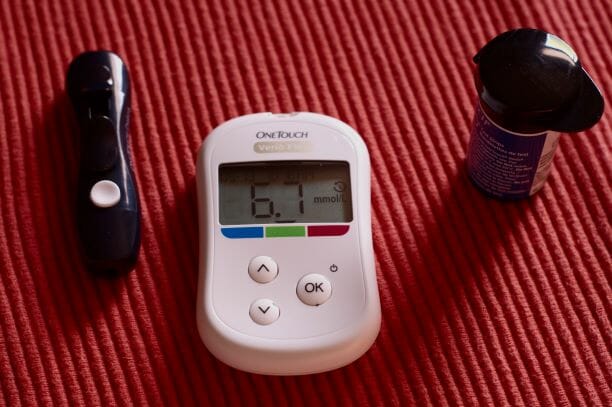
Want to screen for diabetes risk?
With so many people living with diabetes, the term is used so often that we either think that we will never get this, or that if we do there are many medications that will keep it under control. But what we can’t picture are all the risks – blindness, Alzheimer’s disease, amputation, debilitating heart attacks/strokes, weight gain, and the financial repercussions are among the many risks of having diabetes.
FIVE TESTS TO ASSESS YOUR RISK OF DIABETES
-
Fasting insulin
2. Fasting blood glucose levels and HbA1c
Your fasting blood glucose levels indicate how much glucose is being released in your bloodstream when there is no food available (to provide the glucose). It is dependent on what you eat, but it is also dependent on your sleep and stress. If you want to know your 3-month average of your blood glucose levels, you look at your HgA1c. If your fasting glucose levels AND your HgA1c levels are higher, your body has a glucose burden (which leads to diabetes and more).3. Vitamin D
Vitamin D becomes a hormone in the body, after it has been processed by the kidneys and the gut. We can get some of this from the sun, but unfortunately most people do not get adequate sun exposure and/or have poor absorption of this from the skin due to poor gut function. Vitamin D has many functions, and with regards to diabetes, it responsible for improving the function and use of insulin.4. Advanced cholesterol panel
This is a panel that looks at the “quality” of your cholesterol, not just the “calculated quantity”. Many doctors are unfortunately not well-versed in using this. This test looks not only at the type of cholesterol you’ve heard before (HDL, LDL, triglycerides), but it looks at the “vehicles” (apolipoproteins) and “sub-particles” (individual types of LDL, HDL) that are circulating in the blood stream. You want your “vehicles” to be top-of-the-line. For your “sub-particles”, which look at the weight and size of your LDL and HDL, you want the the big, bouncy types, not the small, heavy, sticky types.5. Inflammatory markers
All symptoms and diseases have a chronic inflammatory component. Inflammation is meant to be temporary and serve a quick purpose (such as stopping a bleeding wound or fighting off an infection), but if it’s chronic, it leads to all the complications (and more) listed previously.Lab Tests You Need to Know About
Lab testing is a big missing piece of the wellness puzzle.
Lab testing can alert you to issues affecting your health long before you notice symptoms.
It can also increase compliance and unlock data that will help you reach your wellness goals.
By having an understanding of labs and lab test results, you get to the root cause of health issues.
To learn about lab test you need to know about, download my FREE eBook HERE

Need Direct Lab testing?
Lab testing is the missing piece of the wellness puzzle.
Lab testing can alert you to issues affecting your health long before you notice symptoms.
By having an understanding of labs and lab test results, YOU, can get to the root cause of health issues.
CLICK HERE for the direct access to lab testing.
You can order online here , get your blood drawn and have the results in 48 hours.
Please note: I’m not your medical doctor and I can’t receive lab results from the lab, read or interpret labs, or diagnose or treat any medical condition.
REFERENCES
Templeman NM, et al. A causal role for hyperinsulinemia in obesity. J of Endo. Jan 2017. doi: 10.1530/JOE-16-0449.
Singh B, Saxena A. Surrogate markers of insulin resistance: A review. World Journal of Diabetes. 2010;1(2):36-47.






























